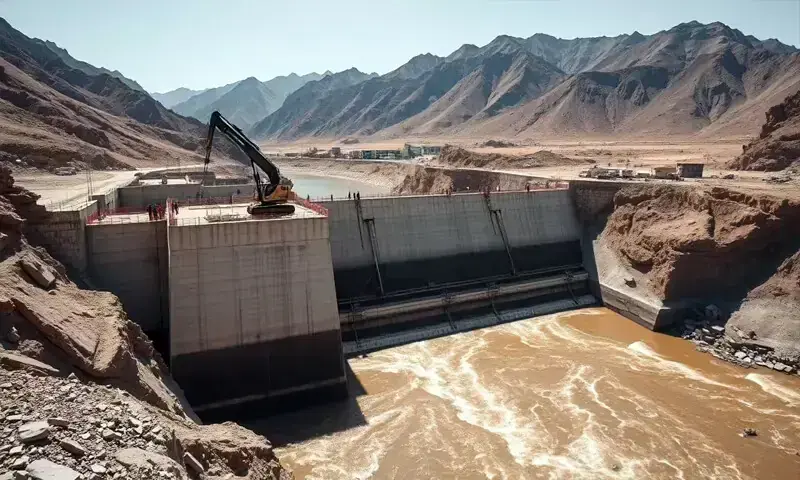Pakistan adopts firm stance to protect water security amid India-Taliban concerns
Amid fears of a possible India–Taliban tie-up to use water as a weapon of war, Pakistan has adopted a firm stance to defend its water security, officials and experts said on Saturday.
According to reports, New Delhi — after its humiliating defeat in the recent Marka-e-Haq — is now seeking to use water as a strategic tool by supporting the construction on waterways inside Afghanistan that could restrict or cut off water flows to Pakistan.
The growing ties between the Afghan Taliban regime and India, analysts say, indicate a strengthening of anti‑Pakistan intent.
An October 24 report in Indian media outlet India Today claimed that the Taliban regime is planning, with Indian assistance, to construct dams on the Kunar River — including projects such as Naghlu, Darunta, Shahtoot, Shah Worus, Gamberi and Baghdera — that could be used to limit Pakistan’s water supply.
The report said India had offered the Taliban government up to $1 billion in financial assistance and technical support for the construction of several dams.
Experts warn that such structures could pose a “serious threat” to Pakistan’s water security because of their direct impact on flows in the Kabul River basin.
The Kabul River supplies Pakistan with roughly 16.5 million acre‑feet of water annually — a lifeline for wheat, maize and sugarcane cultivation in Khyber Pakhtunkhwa districts, including Peshawar, Charsadda and Nowshera.
Pakistani authorities have underlined that water is central to national security, agriculture and the economy, and that it must not be used as an instrument of political or military pressure.
Officials argue that India has already violated international water norms by suspending aspects of the Indus Waters Treaty and now appears to be attempting to influence Pakistan’s western water routes through construction inside Afghanistan.
In response, legal and water experts say Islamabad has begun preparing a comprehensive defensive strategy.
The centrepiece of that plan is the Chitral River Diversion Project, which proposes diverting the waters of the Chitral River toward the Swat basin before they cross into Afghanistan.
Proponents of the Chitral project say it would not only blunt any upstream water‑control measures but would also deliver up to 2,453 megawatts of clean, renewable energy.
Officials further say the plan would bring thousands of acres under cultivation, reduce flood risks and substantially augment the storage of the Warsak and Mahmand dams.
Officials insist the Chitral diversion falls squarely within Pakistan’s right to safeguard its water sovereignty and complies with international law.
They say the state and public stand united in rejecting any attempt to use Afghan territory as a conduit for water coercion against Pakistan.
“Any country that employs water as a weapon against Pakistan will face strong diplomatic and technical countermeasures at all levels,” government sources warned.
For the latest news, follow us on Twitter @Aaj_Urdu. We are also on Facebook, Instagram and YouTube.
























Comments are closed on this story.